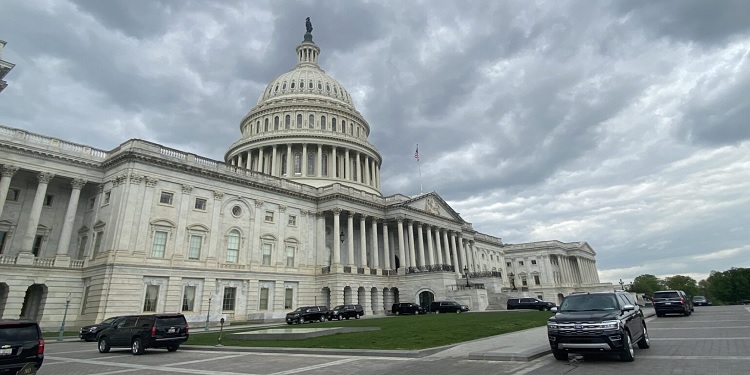The United States House of Representatives has approved the Deploying American Blockchains Act of 2025 (H.R. 1664), signaling a significant shift in the country’s approach to blockchain innovation. The bill, which now awaits Senate consideration, could form the basis of a comprehensive federal strategy to bolster the development and adoption of blockchain technologies across various sectors of the economy.
Introduced during the 119th Congress, H.R. 1664 assigns the U.S. Department of Commerce a central role in advancing blockchain and distributed ledger technologies (DLT). The legislation instructs the Secretary of Commerce to formulate and implement strategies aimed at promoting the deployment, competitiveness, and broader use of blockchain systems in both public and private spheres.
For the first time, federal agencies would be formally directed to coordinate efforts related to blockchain adoption, develop strategic frameworks, and support open-source infrastructure. This represents a clear departure from the previous decentralized and often fragmented approach, and comes at a time when momentum for pro-crypto and Web3 policy has grown at the national level. Observers noted that this marks a transition from passive engagement to active promotion, underscoring a stronger federal commitment to securing a leadership position in blockchain technology globally.
The proposed legislation outlines several priorities, including enhancing the nation’s international competitiveness in the blockchain sector, clarifying regulatory expectations, and dismantling longstanding obstacles that hinder blockchain startups and entrepreneurs. Industry advocates have frequently expressed frustration over the absence of a consistent federal policy, which they argue has led to innovation slowdowns and prompted capital and talent to seek more supportive jurisdictions abroad.
By placing blockchain innovation under the jurisdiction of the Department of Commerce, the bill envisions a more structured framework to establish technical standards, encourage public-private collaboration, and foster skill development among the workforce. It also opens the possibility for harmonized regulation across multiple federal agencies, addressing jurisdictional ambiguities that have often led to conflicting policies.
The measure has received bipartisan backing, suggesting a growing recognition in Congress of blockchain’s potential across sectors beyond cryptocurrency. This development comes as other nations—such as China, Singapore, and the United Arab Emirates—advance their national blockchain agendas, prompting concern over the United States’ relative inaction to date.
The bill targets key areas where blockchain is already demonstrating significant value, such as digital identity, supply chain transparency, and next-generation financial services. These focus areas suggest that lawmakers are aware of blockchain’s transformative capabilities and are looking to harness them as part of a broader digital infrastructure strategy.
Although passage in the House represents a milestone, the future of the bill depends on Senate deliberations. Any modifications or delays in the upper chamber could alter the timeline and scope of the legislation. If enacted without significant changes, H.R. 1664 is poised to serve as a cornerstone of America’s national blockchain strategy, steering the country toward greater innovation, efficiency, and global influence in emerging technologies.



